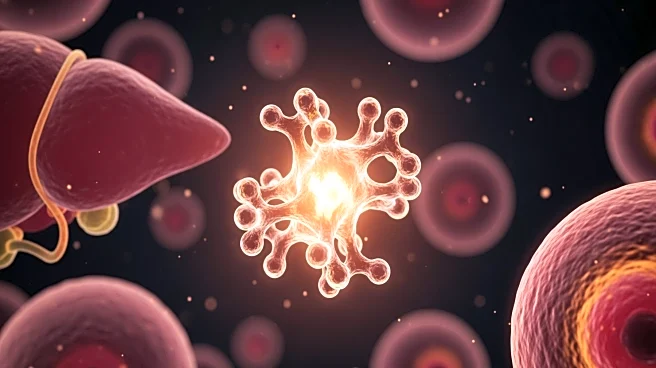What's Happening?
Recent research has revealed that IL-33, released during liver resection, facilitates the growth of intrahepatic cholangiocarcinoma (iCCA) through cytokine secretion in cancer-associated fibroblasts. The study found that IL-33-positive cells and myoCAFs
are significant risk factors for intrahepatic recurrence. Next-generation sequencing showed upregulation of various cytokines, with IL-6 being dominant. In a murine model, hepatectomy increased tumor volume due to IL-33 release, while IL-6 blockade suppressed growth. This research highlights the role of IL-33 in fibroblast activation and its association with cancer recurrence.
Why It's Important?
The findings underscore the importance of understanding the tumor microenvironment and the role of cytokines in cancer progression. By identifying IL-33 as a facilitator of iCCA growth, the study opens avenues for targeted therapies that could inhibit cytokine activity and reduce recurrence rates. This research could lead to improved treatment strategies for patients undergoing liver resection, potentially enhancing survival rates and reducing the risk of cancer spread. The focus on cytokine interactions offers a deeper understanding of cancer biology, which is crucial for developing effective interventions.















